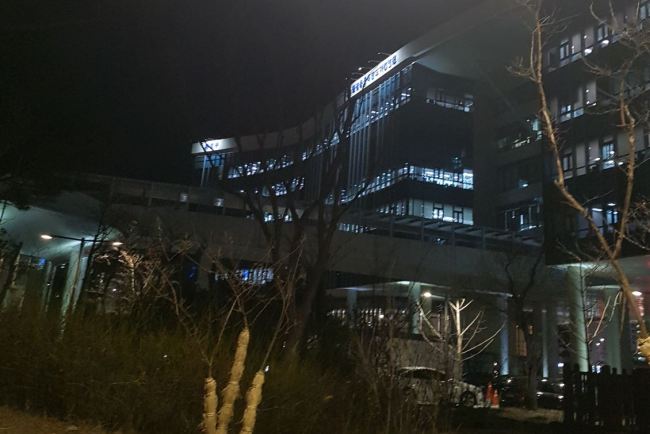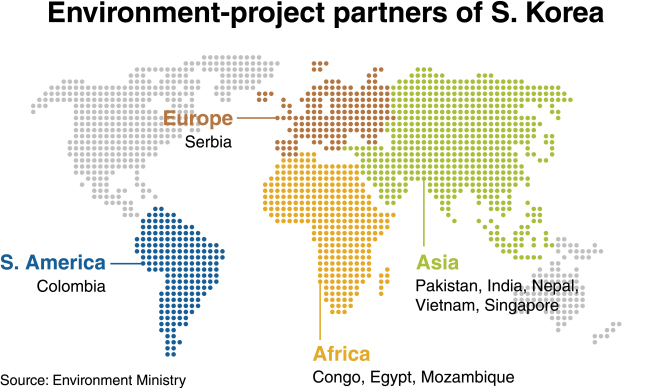[News Focus] World Bank acknowledges Korea’s environmental tech know-how
By Kim Yon-sePublished : Feb. 17, 2019 - 13:55
SEJONG -- In December 2018, South Korea’s leading environmental technology agency signed a contract with the World Bank Group, headquartered in Washington, DC, as the successful bidder for a Himalayan project.
Under the pact, Korea Environment Corp. is taking on policy outsourcing with regard to the effective disposal of waste -- something that is building up rapidly in the Himalayas across Nepal, India and Pakistan. The project started in mid-January.
Having wrapped up its research in September to determine the volume of the waste that has accumulated at some of the mountain range’s most popular tourist destinations, the state-funded Korean agency is ready to suggest countermeasures such as the establishment of oversight systems and disposal facilities.
Locations studied included Pakistan’s Khyber Pakhtunkhwa, India’s Himachal Pradesh and Nepal’s Mount Annapurna and Mount Everest.
Under the pact, Korea Environment Corp. is taking on policy outsourcing with regard to the effective disposal of waste -- something that is building up rapidly in the Himalayas across Nepal, India and Pakistan. The project started in mid-January.
Having wrapped up its research in September to determine the volume of the waste that has accumulated at some of the mountain range’s most popular tourist destinations, the state-funded Korean agency is ready to suggest countermeasures such as the establishment of oversight systems and disposal facilities.
Locations studied included Pakistan’s Khyber Pakhtunkhwa, India’s Himachal Pradesh and Nepal’s Mount Annapurna and Mount Everest.

Officials with the Ministry of Environment at Central Government Complex in Sejong City attributed Korea’s successful bid to the waste management know-how it had built up over the past few decades through state-led initiatives.
“Delegations from other Asian countries and from Russia have visited Korea in recent years,” said an official.
Over the past decade, Korean environmental agencies overseen by the Environment Ministry have won contracts to undertake ecological protection projects in other parts of Asia, as well as in Africa and South and Central America.
These have included the establishment of an atmospheric monitoring system in Colombia, a drinking water sanitation project in the Republic of Congo, a project to inspect sewer pipe construction work in Vietnam and the establishment of an integrated hazardous waste management system in Egypt.

In September, the ministry kicked off Korea International Water Week 2018 in Daegu in coordination with the Korea Water Resources Corp. and the Korea Water Forum.
Korea International Water Week is an annual international event launched in 2016 to reinforce the nation’s status on the global stage, thereby helping local businesses tap more overseas markets.
Dignitaries present at the 2018 gathering included prominent figures from international organizations and senior officials representing foreign governments within Asia, according to the ministry. Among them were the presidents of the World Water Council and the International Water Resources Association, the minister of water resources of Bangladesh and a vice minister from Laos.
“The number of participants came to about 20,000 experts from the water-related government bodies of 80 countries, as well as private companies, organizations and researchers,” said a ministry official. “They included representatives from Orange County in southern California … and Montpellier in southern France.”

In Seoul in September, the ministry also signed memorandums of understanding on environmental cooperation with Serbia and Mozambique.
The MOU with Serbia was suggested by Serbian Minister of Environmental Protection Goran Trivan at an intergovernmental environmental cooperation meeting between the two countries that took place in Belgrade last May. The purpose of the bilateral understanding was to initiate long-term cooperation projects involving air and water quality, waste management and environmental policy and technology.
Trivan visited the Sudokwon Landfill Site Management Corp. and Hanam Union Park to observe spot inspections of high-end waste disposal, recycling and wastewater treatment facilities.
The MOU with Mozambique was a follow-up step to a 2016 pact on natural gas vehicle cooperation between the two countries, inked during the visit of a Korean delegation to the African country.
Some of its provisions include efforts to promote the use of natural gas vehicles in Mozambique, and exchanges of experts between the two countries to improve air quality in the African nation.
In July, the ministry and its Singaporean counterpart signed an MOU on water industry cooperation and climate change countermeasures. The deal followed a series of bilateral discussions and negotiations that began in August 2015.
The MOU with Singapore details the process of implementing cooperation projects in the water industry, technology cooperation, countermeasures against air pollution and climate change, waste management projects and steps to reach the United Nations’ sustainable development goals.
By Kim Yon-se (kys@heraldcorp.com)









![[Today’s K-pop] BTS pop-up event to come to Seoul](http://res.heraldm.com/phpwas/restmb_idxmake.php?idx=644&simg=/content/image/2024/04/17/20240417050734_0.jpg&u=)
![[Graphic News] More Koreans say they plan long-distance trips this year](http://res.heraldm.com/phpwas/restmb_idxmake.php?idx=644&simg=/content/image/2024/04/17/20240417050828_0.gif&u=)






![[KH Explains] Hyundai's full hybrid edge to pay off amid slow transition to pure EVs](http://res.heraldm.com/phpwas/restmb_idxmake.php?idx=652&simg=/content/image/2024/04/18/20240418050645_0.jpg&u=20240419100350)

